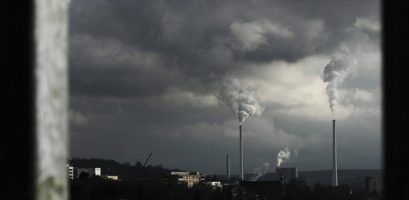

Features
Major Carbon Savings For UK’s Leading Veterinary And Bio-Science Campus
The Sutton Bonington Campus at the University of Nottingham, number one in the league tables, is due to reduce its carbon emissions by using on-site Combined Heat and Power (CHP) technology. The Univeristy will gain secure low carbon energy and reduce CO2 emissions by over 1,200 tonnes a year by commissioning the latest generation of Veolia CHP units.
The 100 acre Sutton Bonington Campus is leading the research to fight infectious diseases in livestock and improve the lives of animals and people worldwide, and includes state-of-the-art teaching facilities, 700 student residences, sports centre, shops and catering outlets. Energy efficient heating and electricity will be supplied to the campus facilities by two 400kWe Veolia units that incorporate the latest advances in efficiency and emission control.
This latest application of combined heat and power on the campus adds to Veolia’s 25MWe capacity that provides energy efficient low carbon generation in higher education. These supply electricity, heating, hot water and cooling for the education and research facilities and housing of more than 200,000 students on over 60 campuses.
Commenting on this latest on-campus installation, Gavin Graveson, COO Public and Commercial, Veolia UK, said:
“With the focus on reducing climate change and preserving resources CHP can contribute both to lowering carbon emissions and reducing the impacts of energy price variations.”
Gavin Graveson : The energy efficiency and security provided by CHP technology helps further the sustainability of universities.
Andy Nolan, Director of Sustainability at The University of Nottingham added
“The new CHP units are a significant step closer in achieving the University’s ambitious carbon reduction target. Alongside the investments in solar power, this will give us greater energy independence, cost savings and reduce our dependency on the grid.”
CHP plants work by effectively capturing and using the heat generated as part of the electricity generation process. This makes a typical CHP more than twice as efficient as separate grid generation and conventional boiler plant, which greatly reduces the carbon emissions from provision of heat and electricity, and can provide energy cost savings that can be re-directed to the core educational and research activities.
For more information visit www.veolia.co.uk


 Environment12 months ago
Environment12 months agoAre Polymer Banknotes: an Eco-Friendly Trend or a Groundswell?

 Features11 months ago
Features11 months agoEco-Friendly Cryptocurrencies: Sustainable Investment Choices

 Features12 months ago
Features12 months agoEco-Friendly Crypto Traders Must Find the Right Exchange

 Energy11 months ago
Energy11 months agoThe Growing Role of Solar Panels in Ireland’s Energy Future





























